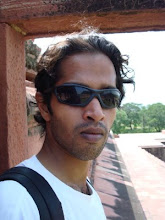Amidst incidents reported from Australia of alleged acts of racial discrimination against Indian students, similar allegations put the biggest democracy on earth on a spot of bother when the Chief Minister of Mizoram, P Lalthanhawla revealed that people inquired about his nationality when he travelled down south back home in India. He was speaking at the Singapore International Water Week.
The statement led to debates to find out the truth whether Indians were as racists as others if not more. Ex-Union minister Manishankar Aiyar defended Lalthanhawla, a fellow Congressman with the routine ‘misinterpreted by the media’ cry and averted that the Mizoram CM could not have been hinting at racism in India when he made that remark. Another ex-Union minister Ravi Shankar Prasad, a member of the BJP agreed with Aiyar thus presenting one of the rare and extraordinary scenes of Indian politics where a Congress and a BJP politician agree on a common point.
But in spite of this televised unity, the truth was actually out in the open for everyone to see that not every Indian felt equally comfortable in his own country. And the reasons of this discomfort often support the theory of India being a racist nation and Indians being racists.
The Mizoram CM’s innocent narration of experiences of his life has a touch of honesty to it. It doesn’t require a deep understanding of the Indian psyche to know that the politician was speaking the truth. There’s every possibility that a resident of any part of India may ask a fellow citizen from the north-eastern states if he’s a Nepali. While lack of awareness is a readily available excuse for this otherwise rude inquiry, it’s still worthy of a debate if such an act amounts to racism.
People of Mongolian origins do have similar features and even someone who’s acutely aware of the nationality of the people from the North-East may not be able to distinguish between a Nepali and a Mizo or a Naga at a first glance. Going by this logic, there’s no reason for the Mizoram CM or anyone else to allege that India is a racist nation. But the cause of the north-eastern discomfort is a little more complicated than what meets the eye.
Apart from being labelled as ‘Chinkys’ (a term widely used in India to refer to people with Mongolian features) and the stories of all the governments at the centre carefully choosing to ignore the north-eastern pleas, there are blatant examples from all over the country that go on to show that people from the north-eastern regions are given enough reasons by their counterparts from other states to dissociate themselves from the mainstream Indian life.
When Prashant Tamang, a resident of Darjeeling, West Bengal won the Indian Idol, a popular singing competition on TV, a Delhi DJ taunted him as a ‘Bahadur’ (apparently a common name for a Nepali securityguard). While Manishankar Aiyar was happy to point out the number of students from North-East in a city like Bangalore in order to refute any remote charge of racial discrimination, he did not discuss the plight and basic problems faced by these students (could be lack of awareness again) in any of the big Indian cities. They largely form ghettos and stick to each other during the campus days. They are considered to be dirty, drug addicts and a lot that has little or no attachment to the traditional Indian values found among people from other regions. Even their food habit (certain groups from the North-East prefer to eat dog meat) is held against them on certain occasions. A few years back, north-eastern students of the prestigious Jawaharlal Nehru University (JNU) in New Delhi complained of step-motherly treatment by the students’ union during the college elections. They revolted against the JNU tradition of referring to them as Chinkys throughout the year and arranging for Rock concerts when the poll drums started to beat.
Moreover, the high percentage of north-eastern students in any big Indian city itself tells the story of the sorry state of education in those states.
There have been calls for separate states (Gorkhaland) and mini-revolts against blatantly discriminatory acts. Whether it brands India as a racist nation would still remain within the domain of sociologists, it is high time the rest of the country lent patient ears to the problems of the North-East. Denials could be suicidal.
Sunday, June 28, 2009
Are We Racists?
Subscribe to:
Post Comments (Atom)




2 comments:
Raj - just two points worth mentioning -
(i) chinky is not a term only used by Indians.
(ii) While totally agreeing with the points you are making, I would take it a step further in stating that the Indian society is intrinsicly racist, ranging from the pro "white" syndrome to the mongolian dis-associative nature (per your blog) of our society.
hey sid, thanks for the comment....i didn't know that the word actually found application elsewhere but what i would be interested in knowing is whether it is a simple application or people always refer to them as ckinkies as we do in india....
Post a Comment